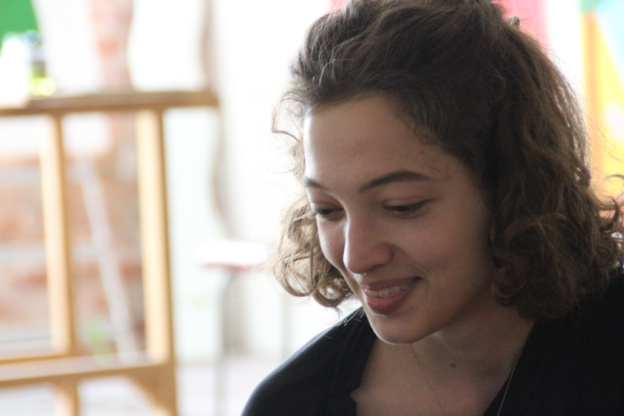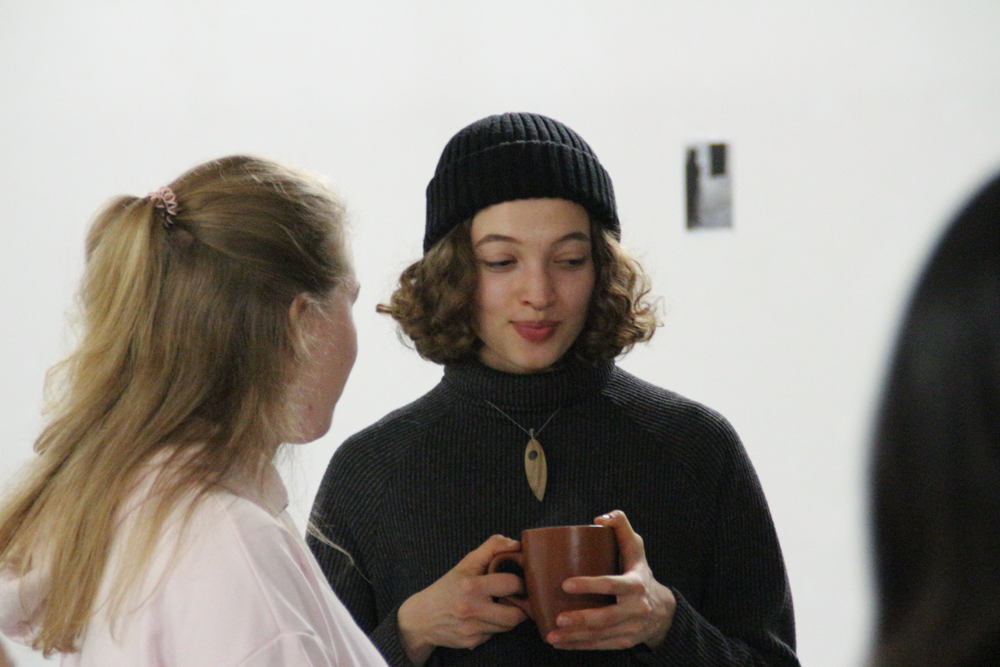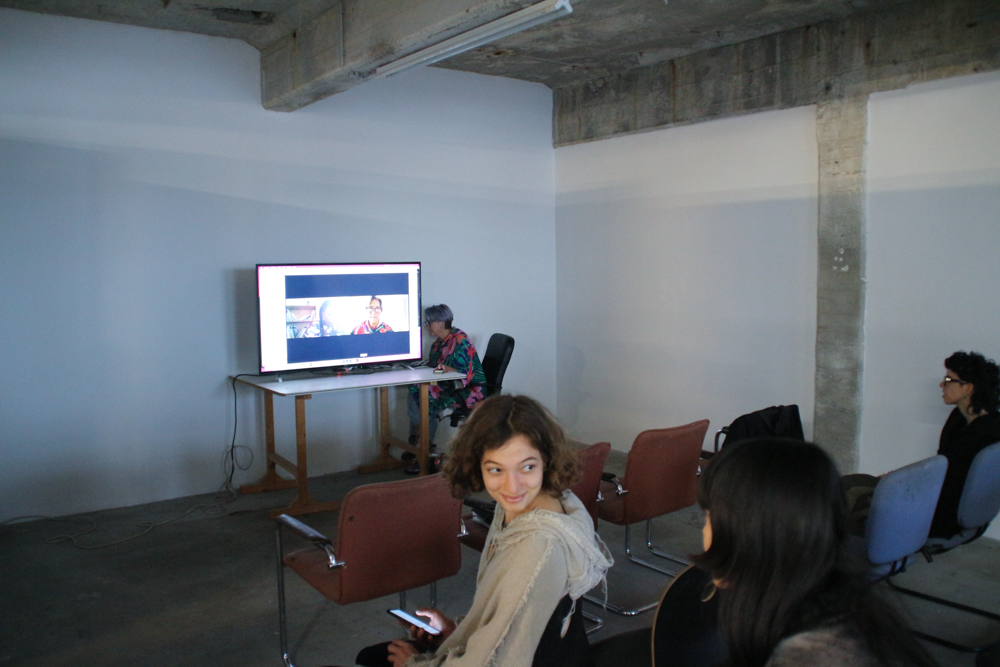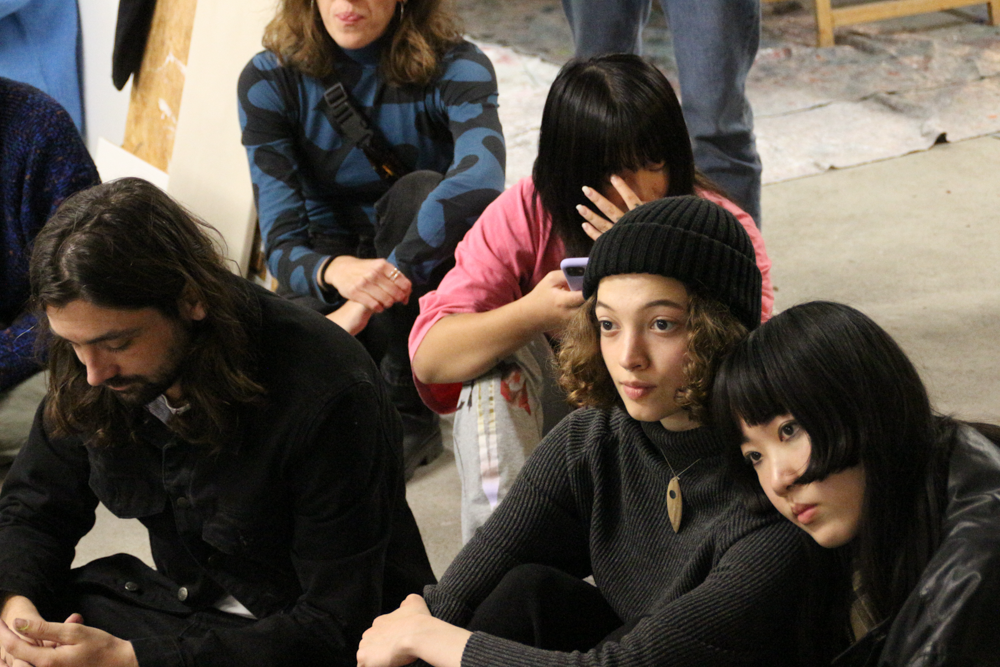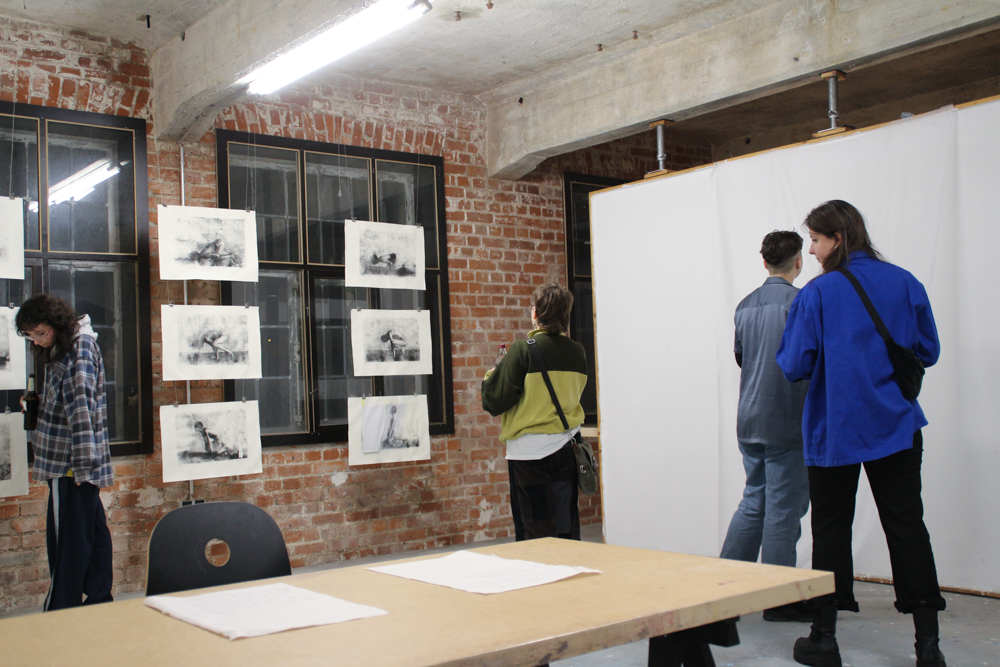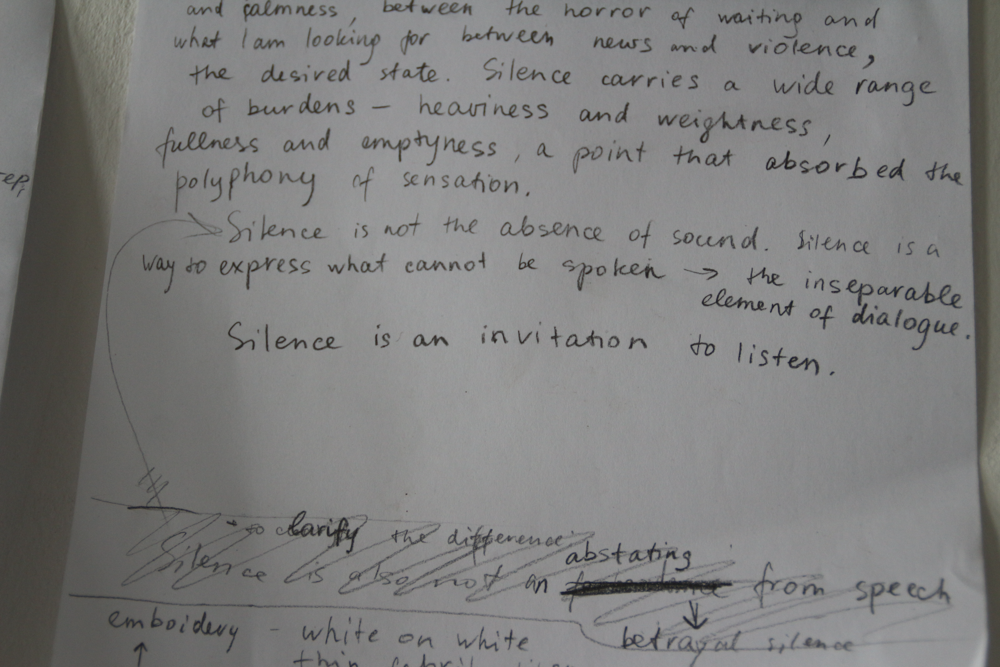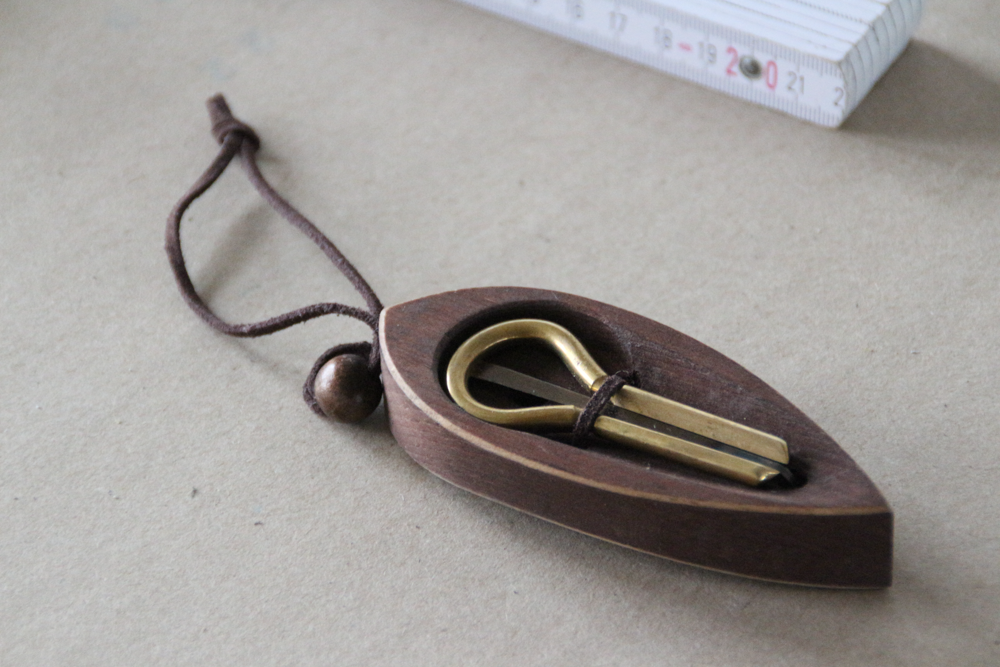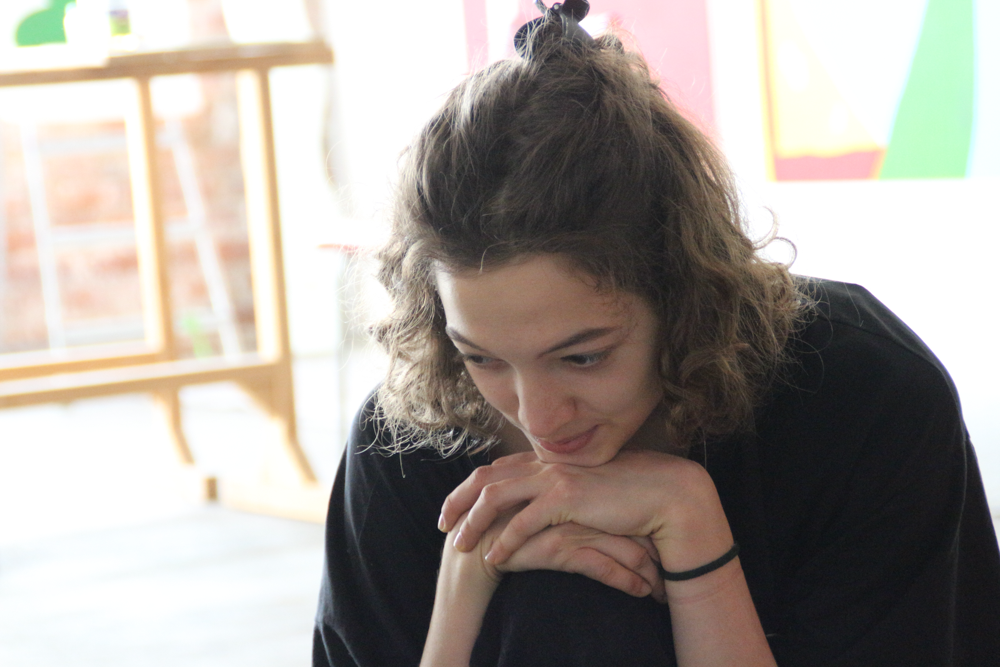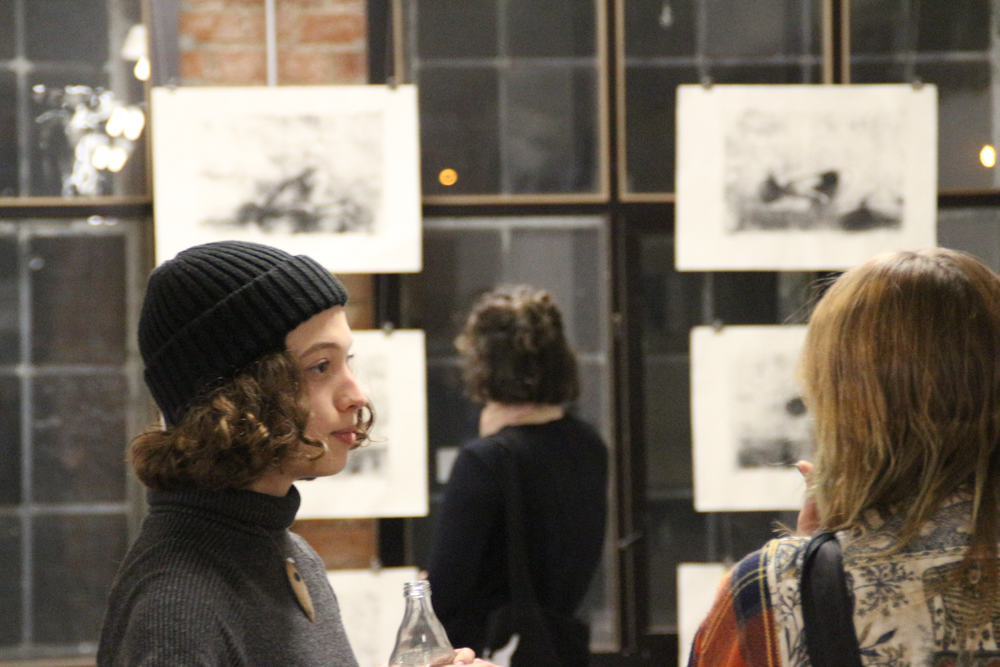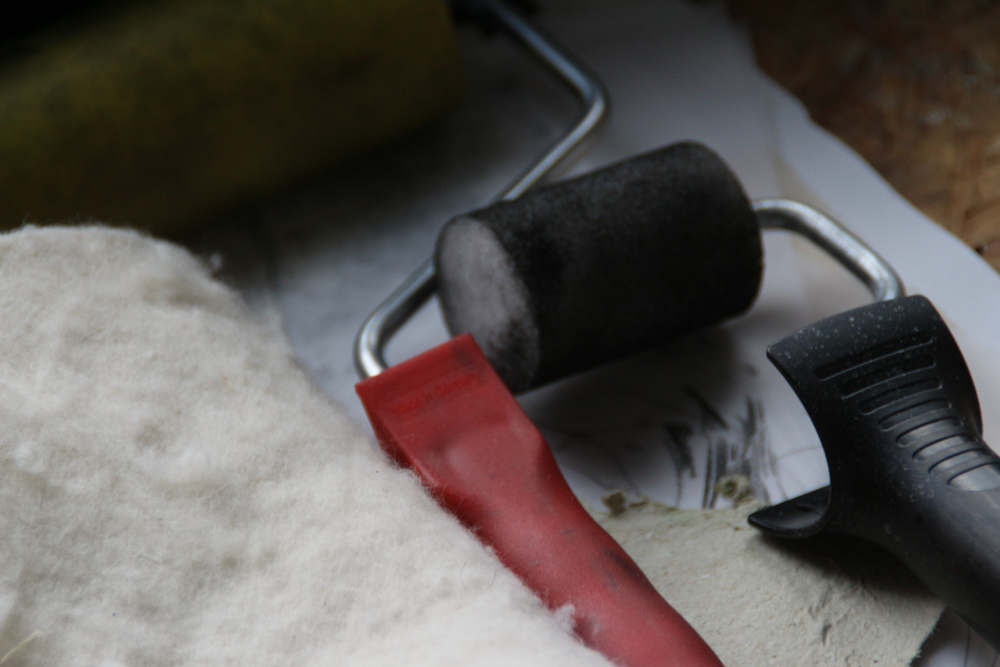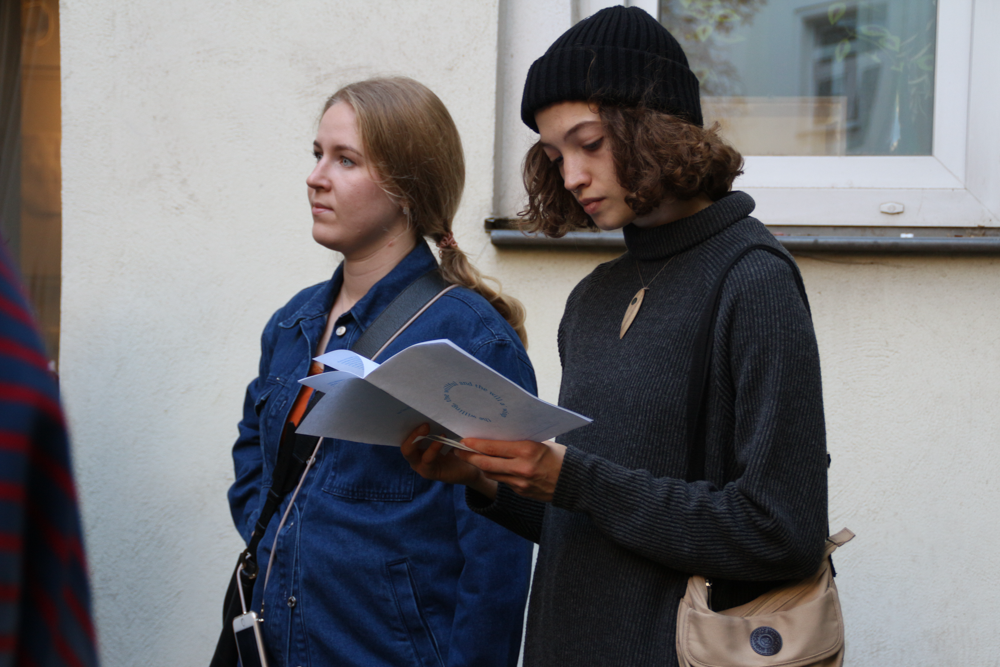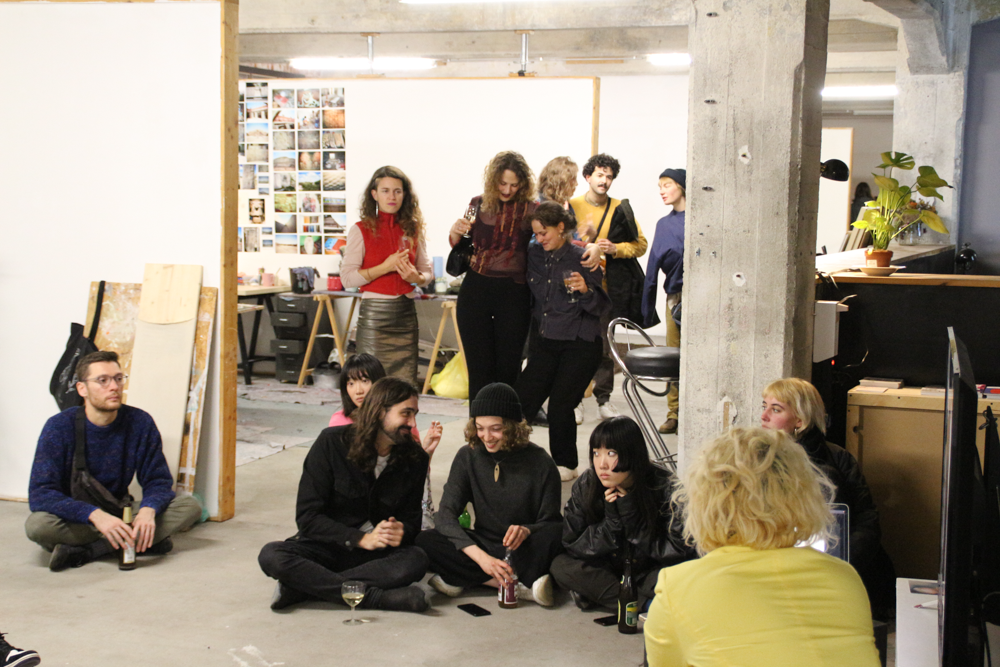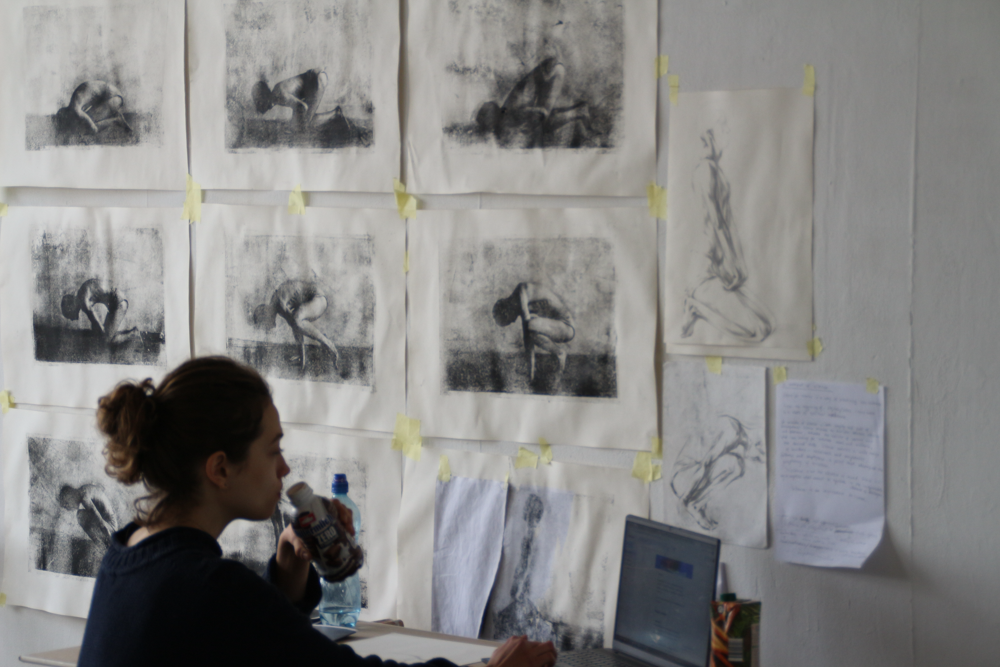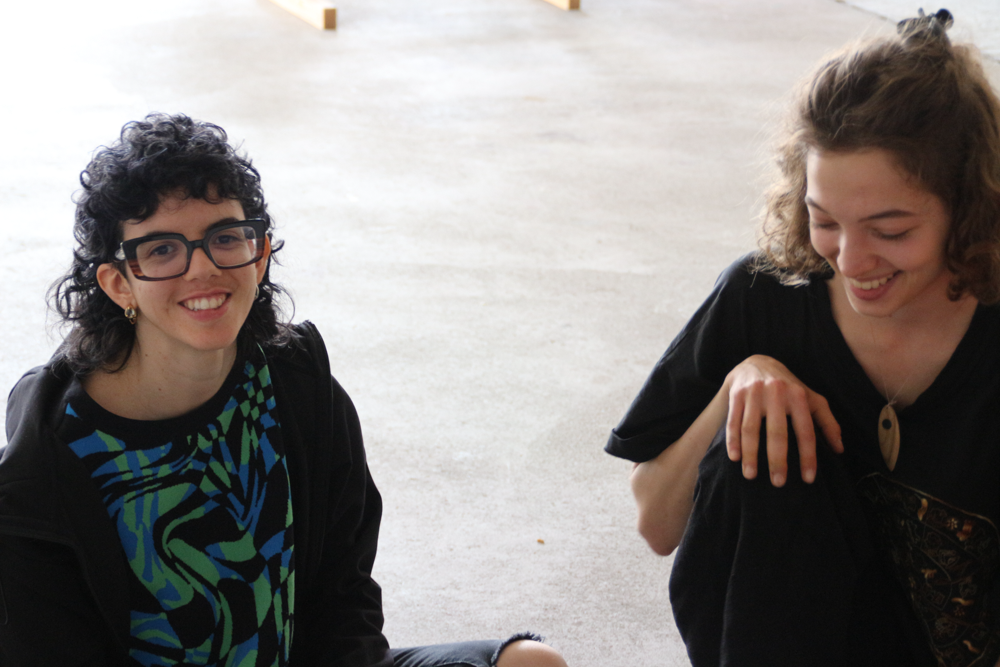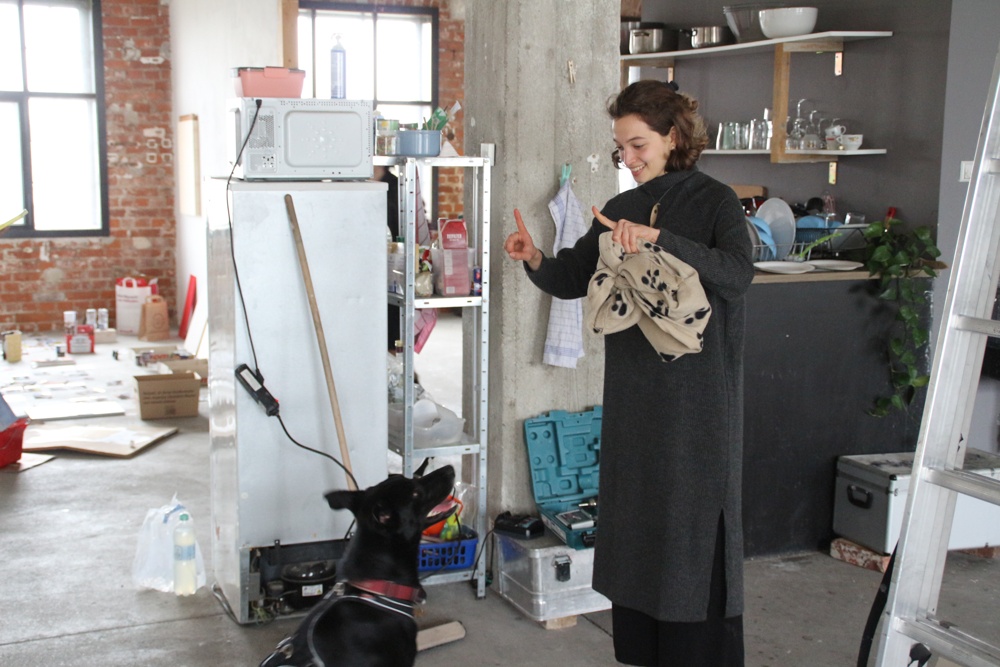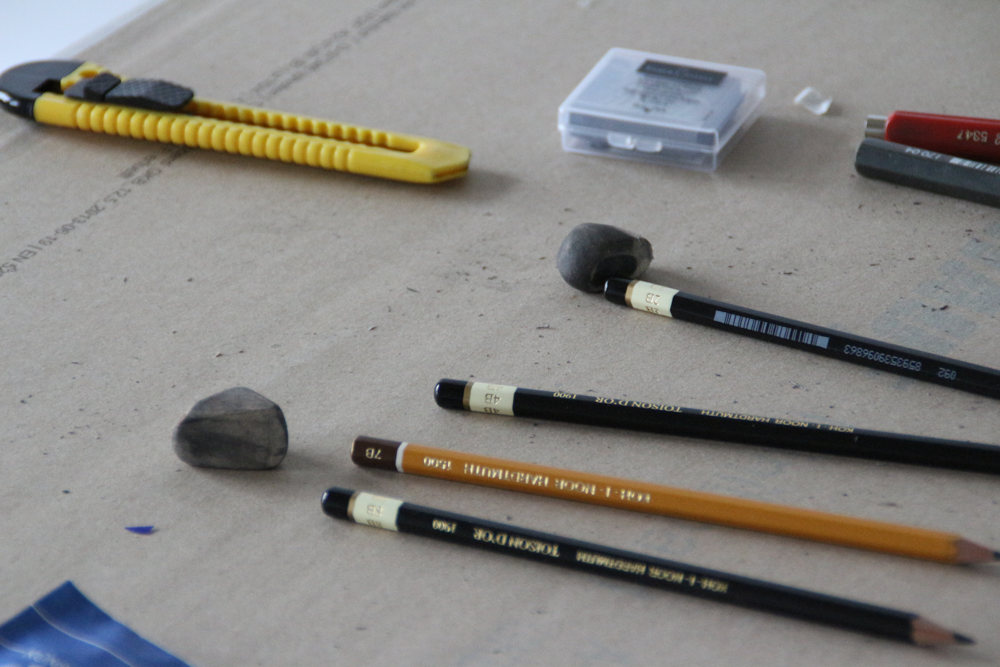Lviv-based artist Kateryna Pokora is in the midst of a totalizing transition. As her perception of the world is changing, so too is her mode of artistic expression.
“Before the war started in Ukraine, we divorced all this stuff—your life, your art, your political situation. But now, you realize that you can’t individually define these things. It’s like a bowl of soup—you can’t separate one thing from another. Politics is your life and your art is your life. It’s so connected that you can’t even see the line between politics and art.”
Material connections
From an early age, Kateryna spent long periods on her own, immersed in the creative stimuli of books and film. She instinctively gravitated toward drawing and writing as a way to interact with her surrounding environment. This impulse remains consistent—as she attests, “It’s my language; it’s how I communicate with people.” Moving westward from her hometown in Kremenchuk to study at the Lviv National Academy of Arts in 2019, she felt newly revitalized, encountering kindred spirits alongside a sweeping topography of mountains and valleys. Though skeptical of the rigidity of formal schooling, Kateryna nonetheless managed to flourish under the new constraints.
images by PILOTENKUECHE or supplied by artist
In all aspects of her practice, Kateryna relies on intuitive experimentation, playfully learning and developing new techniques in the process. Upon coming up with a particular subject of personal relevance, she proceeds to research related concepts through photography. Interested in the creative practices that oblige direct expression, she then transfers the photograph to a different medium, often via printmaking. Kateryna is drawn to the more fluid, tactile quality of hand-processed techniques, of physically working with materials.
Evoking sonic experiences
Ruminating on artistic influences, Kateryna turns to music rather than visual art as her primary source of inspiration. She alludes to the likes of John Cage and Aphex Twin on one end, and the Ukrainian artists of her childhood on the other. In particular, John Cage taught her to rethink the nature of art entirely—“to not put a label on what art is or is not; to just find something that resonates with you.”
For Kateryna, sound is the most direct and accessible form of expression. As a graphic artist, she sought to challenge the assumption that visual mediums are not as accessible as aural ones. In her piece Sound perception (2021), she assembles a series of figurative sketches to visually reflect her sonic experiences. The faded etchings of silhouetted bodies undulate across each paper as though in motion. Probing the bounds of visual communication, Kateryna thus posits the abstracted bodily form as an evocation of embodied movement and sensory experience.
The sound of silence
With her latest work on silence, Kateryna continues to explore the variability of sound perception. Though a contrastive companion piece to her previous work, it signals a seismic shift in her mindset. According to Kateryna, “When you’re from Ukraine, you can’t not reflect on what happened.” Her notion of silence is now informed by the gruesome realities of war. This is silence not just in a literal sense, but as a gesture of respect given to certain tragic events. Through prolonged contemplation, this “moment of silence” functions as a call to listen and to act. In her series, Kateryna imbues her figurative prints with a shadowy realism and insulated stance—hunched and turning inward—as if to implicate spectators as passive participants.
Much like Simone Weil’s concept of attention as pure generosity, Kateryna asserts a necessity to directly engage with social and political realities through her art. Since the Russian invasion of Ukraine, she no longer wants her art to merely express her own internal experiences. Instead, she views it as a reflective act of turning toward another and away from the self. It allows her to penetrate the elusive realm that is the lived experiences of our fellow human beings. And in doing so, she can expend her creative energy to elevate a particular cause or social strife. Borrowing from the Viennese Actionists of the 1960s, Kateryna cites, “But ‘art’ is not art. ‘Art’ is politics that has created new styles of communication.”
written by Antonia Glaser
Keep up with the latest from Kateryna through her instagram.
PK & Friends / Open Studio / BYOBuffet
Fri 4 Nov
7-10
talk by curators, Claudia Caletti and Mary Osaretin Omoregie
PILOTENKUECHE
Franz-Flemming-Str 9
04179 Leipzig
Pleasure Seed
Sat 17 Dec 7-10PM
ARS AVANTI
Alte Handelsschule
Giesserstr 75
04229 Leipzig

